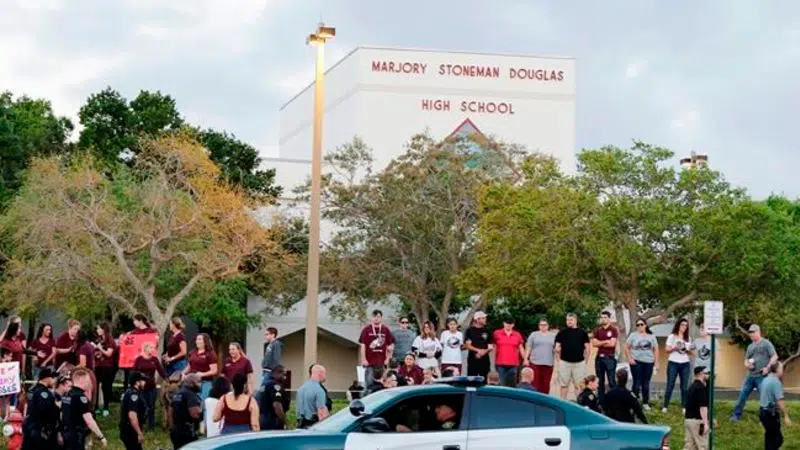
Correction: School Safety-Florida story
TALLAHASSEE, Fla. — In a story May 8 about a school safety bill signed by Florida Gov. Ron DeSantis, The Associated Press reported that the bill takes effect immediately. While nearly all of the recommendations made by a commission formed after a mass shooting at a Parkland high school took immediate effect, changes to the “guardian” program that makes more teachers eligible to carry guns in schools will be implemented Oct. 1.
A corrected version of the story is below:
Florida governor signs bill allowing more armed teachers


